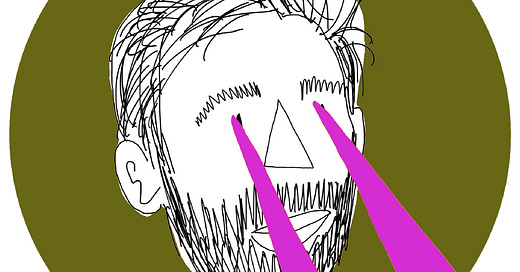COPACABANA (FROM AFAR)
by Ricky Novaes de Oliveira
Iemanjá, my red shoes soaked, your sea-salt reaching returned with flowers
This poem was first published in Rigorous in 2021.
Want to have a thought-provoking poem in your inbox every week?
Tell your friends about the Poem of the Week, I’m sure they’ll love it! <3
Thank you for reading the Poem of the Week.
There’s a lot I could say here, as “Copacabana (from afar)” is one of my most personal poems. So much of me reflects in so few words. There’s magic in ambiguity, but I’ll mention a few things you should know. You should know that Iemanjá is goddess of seafaring and safe-passage in Candomblé, a folk religion customary in Brazil. Offerings to Iemanjá of flowers and sentimental objects are put to the sea around a New Year every winter. You should also know that, though she is often represented in the blue of the sea, “Iemanjá” in this poem is opposite “red.” Blue against red is a clash of culture, race, and custom that is tied also in “reaching” against “returned,” commodity “shoes” against natural “sea-salt.”
A book once told me that there are three fundamental components to a haiku poem: form, nature, and a “moment.” Form (3 lines, 5-7-5 syllable count) and a focus on nature are typical of traditional haikus, as many of us know; but a “moment” distilled into three lines of poetry is an often unconsidered part of the recipe. The moment can be an epiphany, a realization of change, or an intense feeling spurred by the present. Haikus are amazing in this way—few words are needed to show truth.
The “moment” in this poem is a wave crashing over feet in the sand, which causes the speaker to feel guilty for not being connected to their cultural roots. But I believe within a single moment are many more both simultaneously felt. This poem is the moment of my guilty longing for the Brazilian culture I cannot properly reach from Los Angeles; it is the moment of remembering going to the beach in childhood and realizing how far away it feels to look back; and it is the moment connected to my dad’s death and the sea’s immortality. In this way, “Copacabana (from afar)” is a crystallization of pain being slowly shaped into something beautiful; you can look try looking through all the layers at once to see each cut, or you can step back to realize what has been formed.
More or less, Ricky



